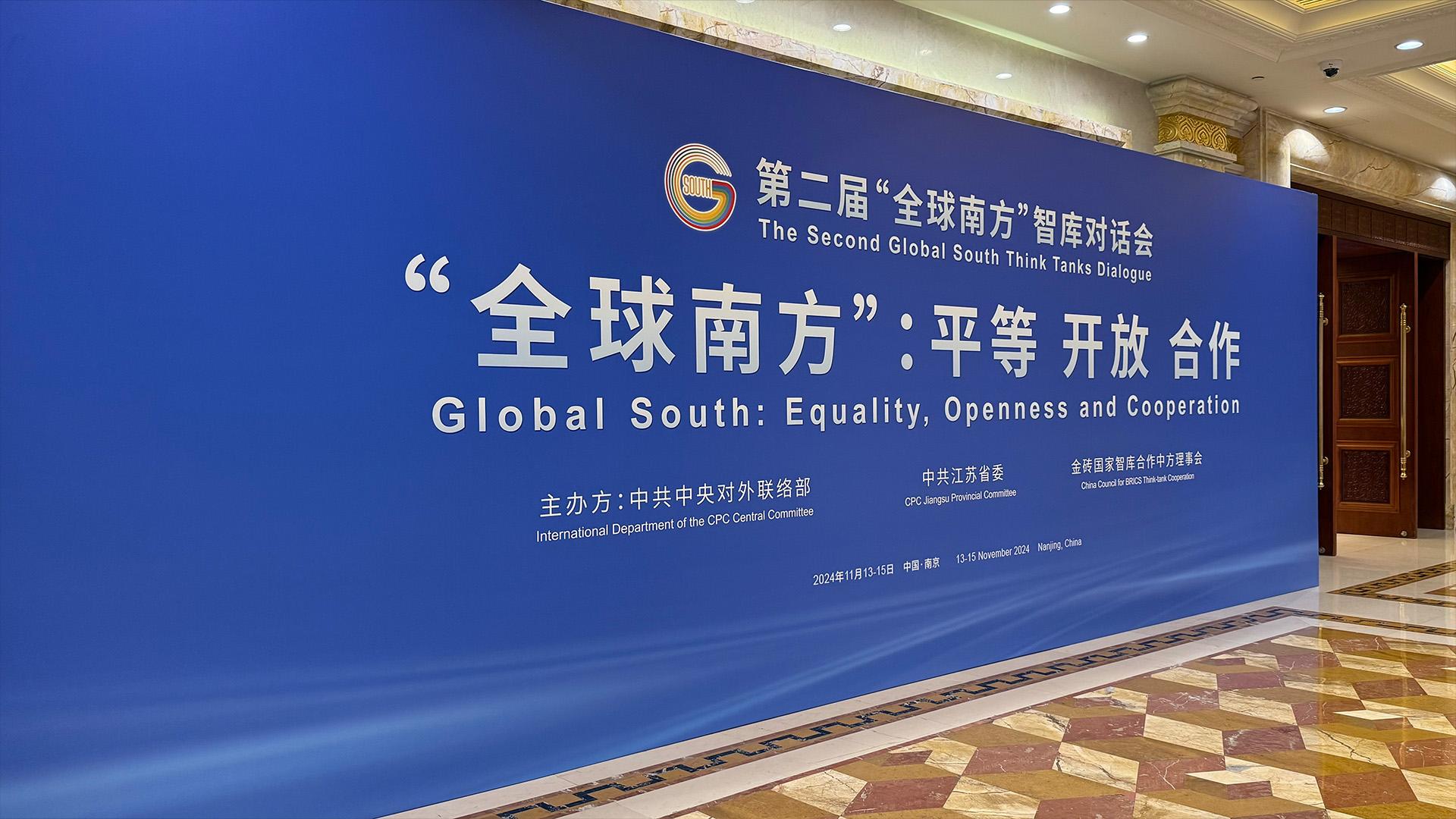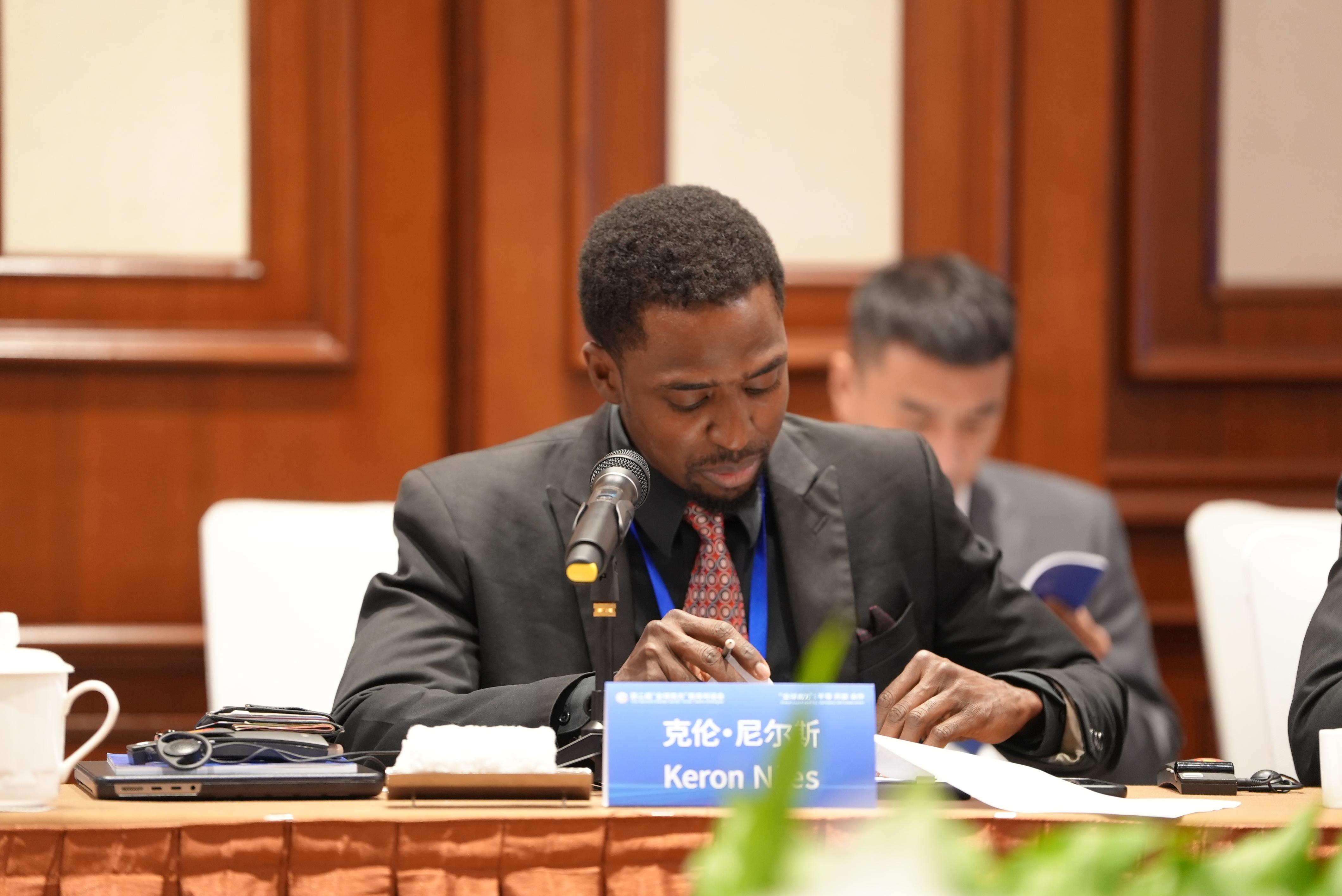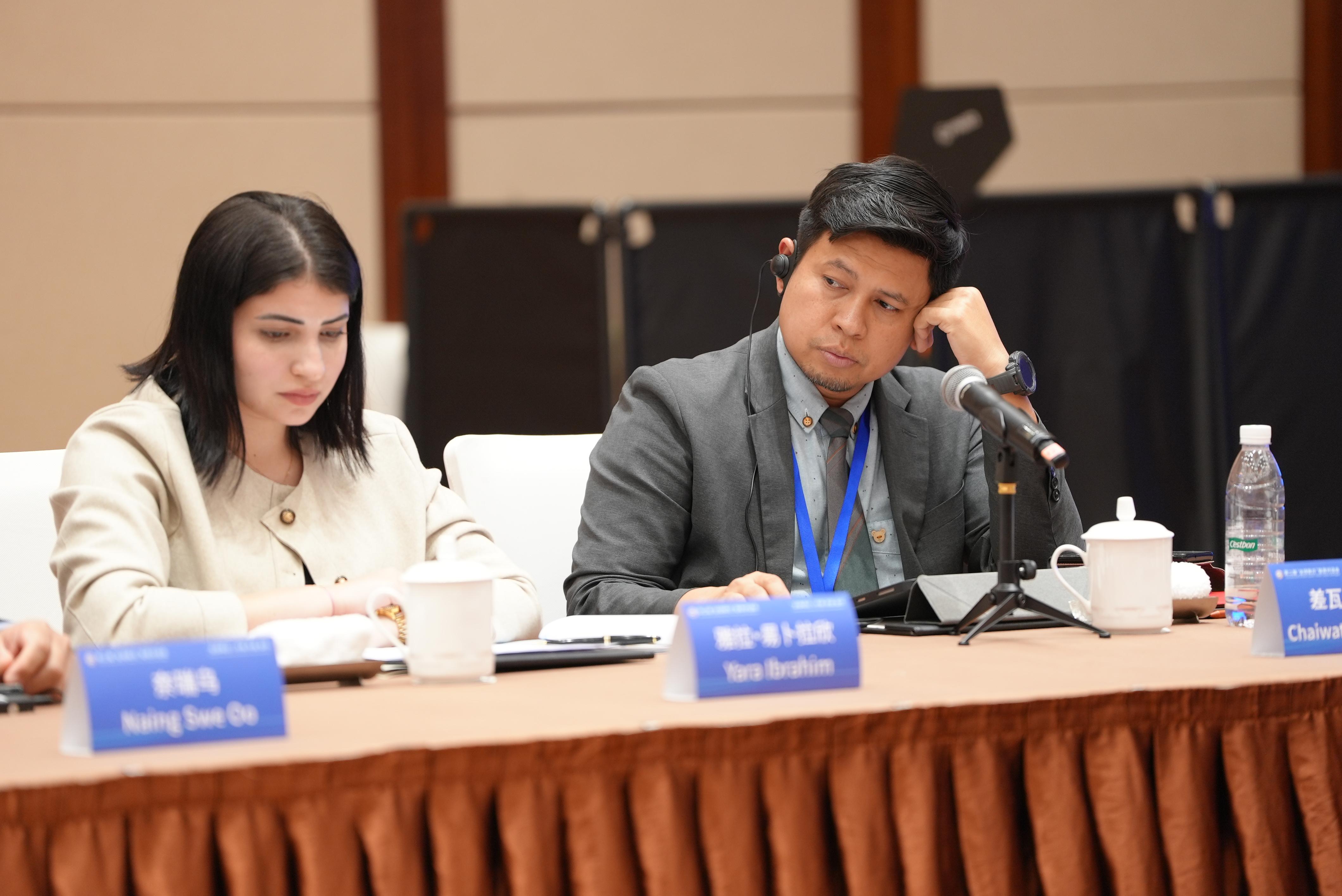
Editor's note: At the second Global South Think Tanks Dialogue in Nanjing, the Global South Think Tank Alliance was launched. With representatives of think tanks from around 100 countries gathered, sharing thoughts and ideas on crucial international issues, we have to ask: Could the Global South be a force for development in a world that’s becoming increasingly volatile? Below is an observation by Huang Jiyuan, CGTN Opinion Editor, on the spot of the second Global South Think Tanks Dialogue and through his dialogue with experts from South Asia, the Middle East, Africa and Latin America & Caribbean.
"The Global South is on the rise" is a consensus in the international community. With a staggering 130 countries, it represents roughly 80 percent of the world’s population, more than 40 percent of global GDP and 51 percent of global trade. As described by the Carnegie Endowment for International Peace, it is "an organizing principle to guide a reimagining of a more just international economy and world order."
That is, by no means, a small task. As geopolitical conflict intensifies and ideology extremifies, many politicians are retreating to their own corners and entrenching themselves in a "with me or against me" mentality. Nathalie Tocci, the director of the Istituto Affari Internazionali in Rome, aptly titled her opinion piece for the Guardian "The world is splintering into 'the west v the rest' – and that leaves us all in more danger." She wrote that "the world is ever more connected…yet the world is ever more divided and fragmented, with spaces for true dialogue, cooperation and understanding narrowing by the day."
It is against this backdrop that the Global South has surged with its own strength. Despite the different interests among them, this group of countries has captured global attention, forcing others to harken to its needs. Luka Biong Deng Kuol, the managing director of the Sudd Institute & Former Minister of Presidential Affairs of South Sudan, said in the interview that the Global South is "not going to be an observer." "We want to be active in the global agenda," he said, adding that "if we don't have policies, the right policy of how can we deliver security and set peace talks to our countries, we become a subject to external agenda."
But how to be "active" in the global agenda? The Global South, by any measure, isn't a formal alliance. Nor is it a fully-formed political group that has a set of institutional support. As the Economist admitted, key international bodies "do not give fair representation to the emerging world. Problems that affect emerging economies only, such as the debt crisis in very poor countries, are wrongly neglected."
Royson Mabuku Mukwena, the vice chancellor of Mulungushi University in Zambia, believes that work needs to be done within the Global South and also patience is needed for the right opportunity. He said that "what we need is to listen (to) our differences within the Global South, so that we avoid unnecessary rivalries, unnecessary competition among ourselves, so that we can enhance our voice in international organizations. So, we need to support each other. When a position that opened up in some of these international organizations, let Global South speak with one voice, support and sponsor candidates from the Global South, have the voice of the Global South increased on the international stage."
Keron Niles, a researcher at the University of the West Indies – St. Augustine Campus in Trinidad and Tobago, echoed Mukwena's opinions. For Trinidad and Tobago, a relatively small country in the Caribbean, it faces many challenges to its interests in a volatile world.
As he said, Trinidad and Tobago's largest trading partner is the United States. Data from the International Trade Administration shows that the U.S. accounts for nearly 40 percent of Trinidad and Tobago's imports and exports. However, as Niles explained, that trade relationship is threatened by the rising protectionism in the United States. To off-set the risks, he is looking for more cooperation within the Global South.

Keron Niles, a researcher at the University of the West Indies – St. Augustine Campus in Trinidad and Tobago, attending the second Global South Think Tanks Dialogue in Nanjing. [Photo/CGTN]
Advocating for one's national interests is what all countries do when the issue concerns their security and prosperity. As Chinese President Xi Jinping said during the "BRICS Plus" Dialogue in Kazan in October, 2024, "we should enhance communication and dialogue, and support each other in taking the path to modernization suited to our respective national conditions." And the Global South could serve as a platform where countries pool their ideas and resources together to facilitate growth in their own individual ways.
For countries like Thailand, that kind of pooling is what it's looking for from this platform. Chaiwat Meesanthan, the director of the Institute of East Asian Studies at the Thammasat University – Rangsit Campus, pointed out the differences between China and the United States when it comes to investment in his country.
When China comes to his country, as Meesanthan said, China brings projects and money to the table. But, the U.S., on the other hand, is different. He sees that the U.S. comes to Southeast Asia just to talk and to control. "But they don't want to talk about the investment in Southeast Asia," Meesanthan said.

Chaiwat Meesanthan (right one), the director of the Institute of East Asian Studies at the Thammasat University – Rangsit Campus in Thailand, attending the second Global South Think Tanks Dialogue in Nanjing. [Photo/CGTN]
So, could the Global South be an anchor for growth? It certainly has the potential. Behzad Khakpour, head of the Research Cooperation Unit at the Iranian Ministry of Foreign Affairs, explained that over the past decades, there have been some fundamental changes in the Global South that made it "more capable than before in order to pursue their aspirations."
According to him, technological advancement, China's development and changes in countries like India, Brazil and South Africa, have established a "very important setting" that could help the Global South to achieve its aims.
The sheer number of participants in the Dialogue is an indication of the enthusiasm that the Global South countries feel towards the potential for cooperation in the future. With representatives of think tanks from around 100 countries gathered in Nanjing, it has displayed a level of solidarity that has become a rarity in a world that's growing volatile. While parts of the world are focusing on conflicts and ideological differences, the Global South countries are focusing on what truly matters - prosperity for their people, a prosperity that can only be achieved if everyone works together.

 中文
中文



